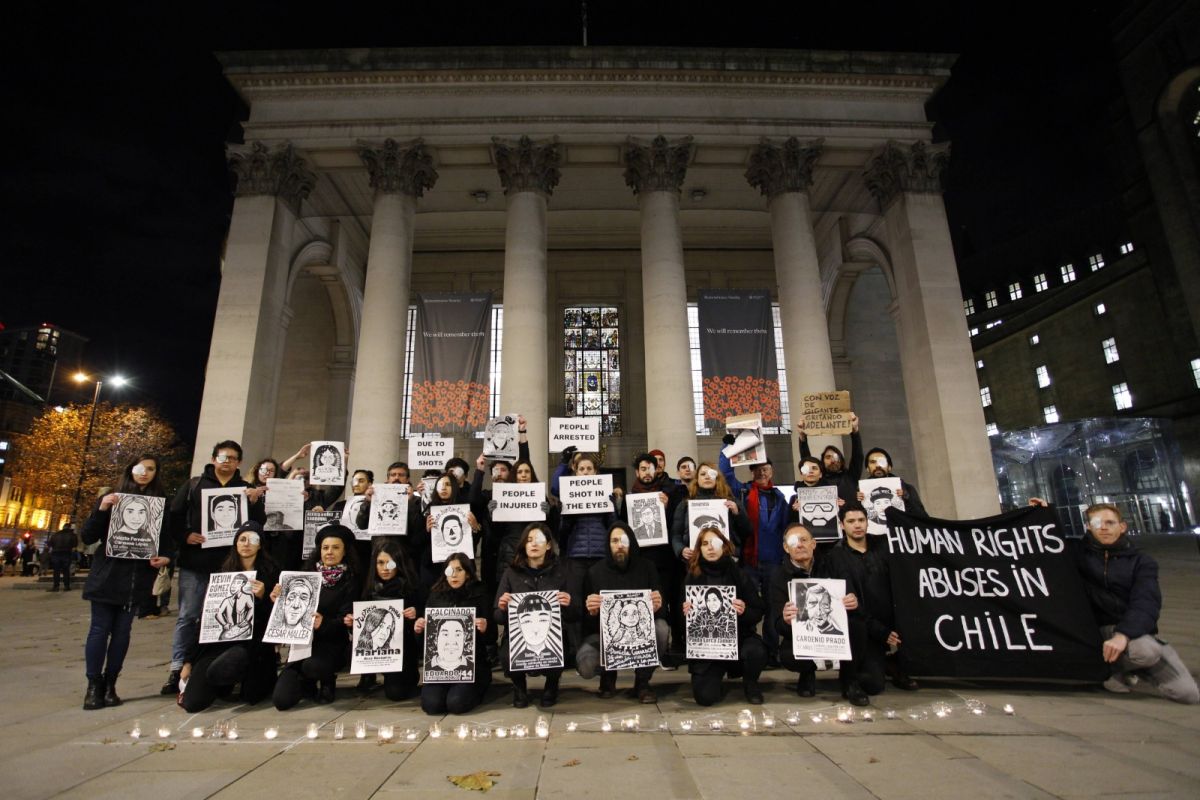Chilean protests: Violence and social control
By Anja Samy

In part two of our Student Voice feature, in partnership with Chilenxs en Manchester, Francisco Espinoza argues that violence is being used by Chilean police and military agents as a means to suppress civil protests against decades of privatisation.
In Chile, demonstrations exploded across the country after decades of social demands being ignored by those in power.
The constant attack on unions, social movements and revolutionary parties, and the stagnated political institutions – moulded under dictatorship and barely modified since then – created a system with no space for integration or political mediation.
We have been left with no other alternative than occupying the streets and, after the indolence of several governments, we won’t rest until we get what is fair.
Protests at their core are fighting against the privatisation of every domain in our social life. Under this accumulation by dispossession model, which centralises wealth and power in the hands of a select few, company profits are fed by people’s lifelong debt.
Healthcare, pensions, schools, public transport or even prisons; you name it and Chile will provide an example on privatisation. Neoliberalism does not propose the lack of a State but makes it play a different role by ensuring the framework for private accumulation. Thus, business greed is not only legal – is the national motto.
It is not that easy to change things, though. After weeks of protests, the government has not made any real change and keeps treating demonstrators as an enemy to be destroyed.
The National Institute for Human Rights Chile (INDH Chile) released figures from observations of demonstrations, police stations and hospitals. INDH Chile reported that 8466 people have been hospitalised during the protests between October 17th and December 3rd, as well as 517 legal complaints of torture.
🔴 [Última actualización] Cifras recopiladas directamente por el INDH en observaciones a manifestaciones, comisarías y centros hospitalarios, desde el jueves 17 de octubre hasta el martes 3 de diciembre de 2019. Sigue el timeline de las cifras INDH aquí https://t.co/YiTEBLbyGr pic.twitter.com/Gdrx3RCWNJ
— INDH Chile (@inddhh) December 4, 2019
There are reports that police officers are shooting rubber bullets and other projectiles at people’s eyes and allegedly sexually abusing detainees. INDH Chile found evidence of 241 ocular injuries and 106 legal complaints of sexual violence .
Violent acts such as these are a mechanism for social control, as it appears they are enacting punishment on those that dare to oppose the status quo. These are warning signs, used to deter others from rising up and joining the fight.
Thirty years after the end of dictatorship, people are being violently repressed because we are pushing for radical transformation and changing the country’s history.
If once Chile was the lab for testing Neoliberalism, Chileans will now be the flame to burn it to ashes.
Written by Francisco Espinoza, Francisco Espinoza, staff at Division of Nursing, Midwifery & Social Work, (School of Health Sciences) and member of Chilenxs en Manchester – a group of Chilean students at the University of Manchester and Chilean Manchester residents.







